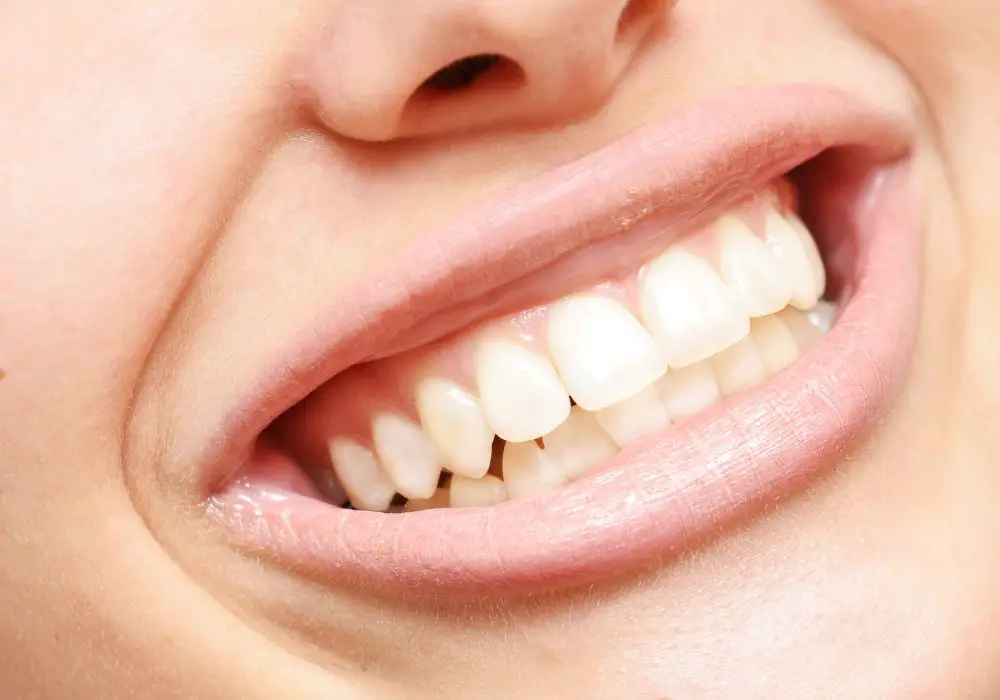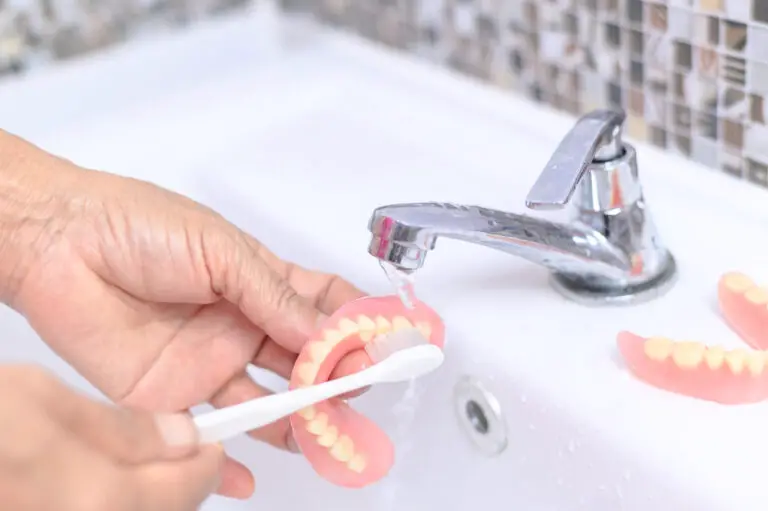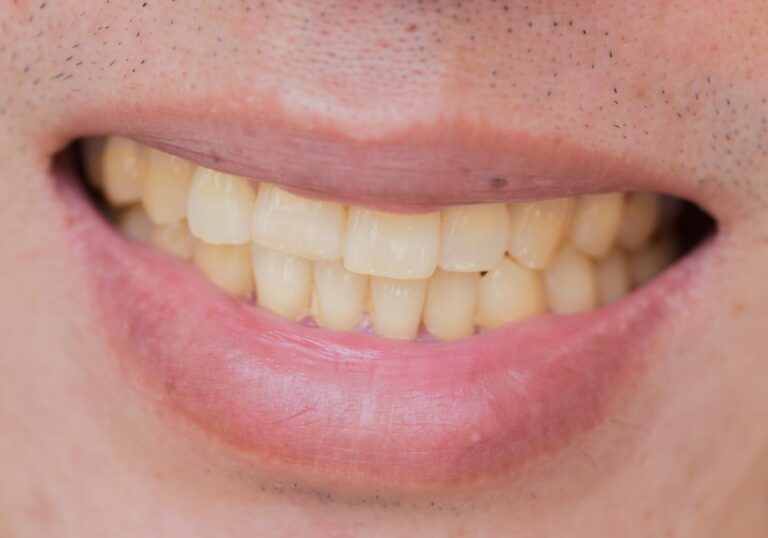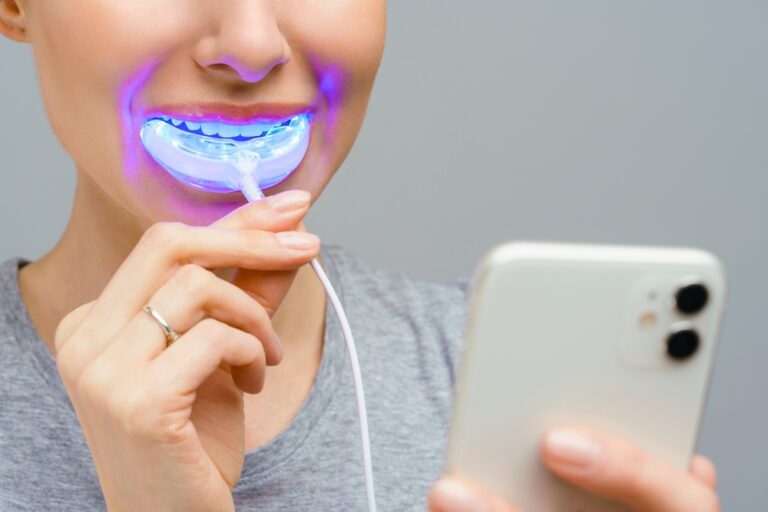If you want to keep your teeth healthy and strong, there are several things you can do. First and foremost, practicing good oral hygiene is essential. Brushing your teeth twice a day, flossing regularly, and using mouthwash can help remove harmful bacteria and prevent tooth decay.
Another way to strengthen your teeth is to eat a balanced diet that is rich in calcium, phosphorus, and vitamin A. These nutrients help build and protect tooth enamel, which is the outer layer of your teeth. Foods like dairy products, leafy greens, and carrots are great sources of these essential nutrients.
In addition to good oral hygiene and a healthy diet, there are also several products you can use to strengthen your teeth. Remineralization toothpaste, for example, can help repair and protect enamel by providing your teeth with the minerals they need to stay strong. Other products, like fluoride treatments and dental sealants, can also help prevent tooth decay and keep your teeth healthy.
The Role of Calcium in Teeth Strength

Calcium is an essential mineral that plays a crucial role in building strong and healthy teeth. Here are some important things to know about calcium and its impact on teeth strength.
Sources of Calcium
You can get calcium from a variety of foods, including dairy products, leafy green vegetables, nuts, and fish. Here are some examples of calcium-rich foods:
| Food | Calcium Content (mg per serving) |
|---|---|
| Milk (1 cup) | 300 |
| Yogurt (6 oz) | 300 |
| Cheese (1 oz) | 200-300 |
| Kale (1 cup, cooked) | 94 |
| Almonds (1 oz) | 75 |
| Salmon (3 oz) | 180 |
Calcium Absorption
Your body needs vitamin D to absorb calcium properly. You can get vitamin D from sunlight, certain foods (such as fatty fish), or supplements. Without enough vitamin D, your body may not be able to absorb enough calcium, which can lead to weaker teeth and bones.
It’s also important to note that too much calcium can be harmful. In general, adults should aim to get 1,000-1,200 mg of calcium per day, depending on their age and gender. Talk to your doctor if you’re concerned about your calcium intake.
In summary, calcium is a crucial mineral for building strong and healthy teeth. Make sure you’re getting enough calcium from your diet and that you’re also getting enough vitamin D to help your body absorb it properly.
Importance of Vitamin D
Vitamin D is a crucial nutrient that plays a significant role in promoting dental health and helping prevent tooth decay and gum disease. It is essential for building healthy bones, as it allows your digestive system to absorb calcium from your diet. Calcium is the raw material that, along with phosphorus, creates the bony structure that makes up tooth enamel.
Vitamin D and Calcium Absorption
Vitamin D is essential for the absorption and utilization of calcium in the body, which is crucial for strong and healthy teeth. Without sufficient vitamin D, your body cannot absorb the calcium it needs to build and maintain strong teeth and bones. This can lead to weakened teeth and bones, making you more susceptible to cavities, fractures, and decay.
Sources of Vitamin D
The best source of vitamin D is sunlight. When your skin is exposed to sunlight, it produces vitamin D naturally. However, many people do not get enough sun exposure, especially during the winter months. In these cases, it is important to get vitamin D from dietary sources.
Foods that are high in vitamin D include fatty fish such as salmon, tuna, and mackerel, as well as egg yolks, cheese, and fortified foods such as milk, cereal, and orange juice. Supplements are also available to help ensure that you are getting enough vitamin D.
In conclusion, vitamin D is an essential nutrient for strong and healthy teeth. It helps your body absorb calcium, which is crucial for building and maintaining strong teeth and bones. Be sure to get enough vitamin D from sunlight, dietary sources, or supplements to maintain good dental health.
Proper Oral Hygiene Habits

Taking care of your teeth is an essential part of keeping them strong and healthy. Proper oral hygiene habits can help prevent tooth decay, gum disease, and other dental problems. Here are some habits that you can adopt to maintain good oral hygiene:
Regular Brushing
Brushing your teeth twice a day is an important part of maintaining good oral hygiene. Make sure to brush all surfaces of your teeth, including the fronts, backs, and tops. Use a fluoride toothpaste and a soft-bristled toothbrush. Brushing your teeth properly can help remove plaque and prevent cavities.
Flossing
Flossing is another important part of maintaining good oral hygiene. It helps remove food particles and plaque from between your teeth, where your toothbrush can’t reach. Floss at least once a day, preferably before bedtime. Use a piece of floss about 18 inches long and wrap it around your fingers. Gently slide the floss between your teeth and curve it around the base of each tooth, making sure to go below the gumline.
By adopting these habits, you can help keep your teeth strong and healthy. Remember to also visit your dentist regularly for check-ups and cleanings.
The Impact of Diet on Teeth Strength
Your diet plays a crucial role in maintaining the strength of your teeth. Consuming certain foods can help keep your teeth healthy and strong, while others can cause damage and weaken them. In this section, we will discuss the foods you should avoid and the ones you should include in your diet to promote stronger teeth.
Foods to Avoid
To maintain strong teeth, it is important to avoid foods that can cause damage. Here are some of the foods you should limit or avoid altogether:
- Sugary Foods: Sugary foods such as candy and soda can cause tooth decay and weaken your teeth over time. Try to limit your intake of sugary foods and drinks.
- Acidic Foods: Acidic foods such as citrus fruits and juices can erode your tooth enamel, making your teeth more susceptible to decay. If you do consume acidic foods, rinse your mouth with water afterward to help neutralize the acid.
- Sticky Foods: Sticky foods such as dried fruit and caramel can stick to your teeth, increasing the risk of decay. If you do eat sticky foods, be sure to brush and floss your teeth afterward.
Foods to Include
Including certain foods in your diet can help strengthen your teeth and promote overall oral health. Here are some of the foods you should include:
- Dairy Products: Dairy products such as milk, cheese, and yogurt are rich in calcium, which is essential for strong teeth and bones.
- Leafy Greens: Leafy greens such as kale and spinach are high in calcium and other essential vitamins and minerals that promote oral health.
- Crunchy Fruits and Vegetables: Crunchy fruits and vegetables such as apples and carrots can help scrub your teeth clean and stimulate saliva production, which helps neutralize acid in your mouth.
By avoiding certain foods and including others in your diet, you can help keep your teeth strong and healthy. Remember to brush and floss regularly and visit your dentist for regular check-ups to maintain optimal oral health.
Fluoride and Teeth Strength
Fluoride is a mineral that can help strengthen your teeth. It works by making your teeth more resistant to acid attacks from bacteria in your mouth. Here are some ways fluoride can help make your teeth stronger:
Fluoride Sources
Fluoride can be found in many sources, including:
- Water: Some communities add fluoride to their water supply. Check with your local water authority to see if your water contains fluoride.
- Toothpaste: Most toothpaste contains fluoride. Be sure to look for the American Dental Association (ADA) seal of approval on the packaging.
- Mouthwash: Some mouthwashes contain fluoride. Look for the ADA seal of approval.
- Supplements: Your dentist may recommend fluoride supplements if you live in an area without fluoridated water or if you are at high risk for tooth decay.
Fluoride Treatment
Your dentist may recommend a fluoride treatment to help strengthen your teeth. This is a quick and painless procedure that involves applying a fluoride gel or varnish to your teeth. The fluoride is absorbed by your teeth and helps to make them stronger.
Fluoride treatments are especially important for children, as their teeth are still developing. However, adults can also benefit from fluoride treatments, especially if they are at high risk for tooth decay.
It’s important to note that while fluoride can help strengthen your teeth, it’s not a substitute for good oral hygiene. Be sure to brush your teeth twice a day, floss daily, and visit your dentist regularly for checkups and cleanings.
Regular Dental Check-Ups

Regular dental check-ups are an essential part of maintaining strong and healthy teeth. During these appointments, your dentist will examine your teeth and gums to check for any signs of decay, gum disease, or other oral health issues.
The American Dental Association recommends that you visit your dentist at least twice a year for routine check-ups. However, your dentist may recommend more frequent visits if you have a history of dental problems or if you are at a higher risk for developing certain conditions.
During your check-up, your dentist may also perform a professional cleaning to remove any plaque or tartar buildup that has accumulated on your teeth. This is important because plaque and tartar can lead to tooth decay and gum disease if left untreated.
In addition to checking for oral health issues, your dentist may also provide guidance on proper oral hygiene practices. This may include recommendations for brushing and flossing techniques, as well as advice on the best oral care products to use.
By attending regular dental check-ups, you can catch any potential oral health issues early on, before they become more serious and more expensive to treat. So, make sure to schedule your next appointment with your dentist today!
Frequently Asked Questions
What are some foods that can help strengthen teeth?
Eating a balanced diet that includes a variety of foods can help strengthen your teeth. Foods that are high in calcium, such as milk, cheese, and yogurt, can help strengthen teeth. Protein-rich foods like meat, poultry, fish, and eggs can also help. Fruits and vegetables are a source of vitamin C, which is good for healthy gums. Eating fruits and veggies can stimulate saliva production, which contains minerals like calcium, fluoride, and phosphate ions that keep the surface of your teeth strong.
Are there any supplements that can help strengthen teeth?
There are some supplements that can help strengthen teeth, such as calcium and vitamin D. Calcium is an essential mineral for strong teeth and bones, and vitamin D helps your body absorb calcium. You can get these nutrients from your diet or through supplements, but it’s best to talk to your healthcare provider before taking any supplements.
How can I naturally rebuild tooth enamel?
To rebuild tooth enamel naturally, you can try using remineralization toothpaste that contains fluoride, which helps reverse early decay by remineralizing (repairing) the enamel layer and protecting your teeth against bacteria. You can also try oil pulling with coconut oil, which has antimicrobial properties that may help protect against tooth decay.
What are some ways to strengthen teeth roots naturally?
There are no proven ways to naturally strengthen teeth roots. However, maintaining good oral hygiene, such as brushing twice a day and flossing daily, can help prevent gum disease and tooth loss. Additionally, visiting your dentist regularly for cleanings and checkups can help catch any issues early on.
What are some teeth strengthening products available?
There are various teeth strengthening products available, such as fluoride toothpaste, remineralization toothpaste, and mouthwash. Additionally, dental sealants can be applied to the chewing surfaces of your back teeth to protect against decay.
Can weak teeth be strengthened naturally?
While there are no proven ways to naturally strengthen weak teeth, maintaining good oral hygiene and eating a balanced diet can help prevent further damage. Additionally, using teeth strengthening products, such as fluoride toothpaste and remineralization toothpaste, can help protect against decay. If you have weak teeth, it’s best to talk to your dentist to determine the best course of action for your specific situation.







